Crossroads MVP
Lists
Range and Duration
 Range
Range- All Ranges are given in rough approximations. These are defined below, though these may be changed if you wish.
 Duration
Duration- All Durations are given in rough approximations. These are defined below, though these may be changed if you wish.
- You may also allow certain factors such as environment or character attributes affect the Duration.
| Ranged | |
| Adjacent | melee range (approx 1 metre) |
| Close | up to 10 metres |
| Far | up to 20 metres |
| Very Far | more than 20 metres |
| Radius | |
| Personal | anything touching the target |
| Small | up to 1 metre radius around the target (melee range) |
| Medium | up to 5 metre radius around the target |
| Large | up to 10 metre radius around the target |
| Duration | |
| Short | until end of encounter |
| Medium | until the end of scene |
| Long | until the end of day |
Conditions
 Afflicted
Afflicted- Unable to see. Gain Disadvantage on any Action that requires sight.
 Blind
Blind- Unable to see. Gain Disadvantage on any Action that requires sight.
 Bound
Bound- Two levels — Bound and Completely Bound.
- Bound:
- Unable to move bound limbs.
- Completely Bound:
- Unable to move at all.
- See BINDING TABLE for additional details.
 Broken
Broken- Broken Items cannot be used properly.
- See Equipment Damage for additional details.
 Damaged
Damaged- May still be used but with Disadvantage until repaired.
- See Equipment Damage for additional details.
 Deafened
Deafened- Unable to hear.
- Gain Disadvantage on any Action that requires hearing.
 Disarmed
Disarmed- Count as unarmed until weapons are retrieved.
 Disoriented
Disoriented- Get only a Single Action each turn. Also gain Disadvantage on all actions.
- See DISORIENT TABLE for additional details.
 Empowered
Empowered- Gain Advantage on all spellcasting.
 Fear
Fear- Must act according to Instincts.
- For most, will drop carried items and run away or hide.
 Grappled
Grappled- Unable to move or act until the Grapple is broken.
 Prone
Prone- Lying prone or crawling. Gain Disadvantage on many Actions, but become harder to hit with ranged attacks.
 Silenced
Silenced- Unable to speak or cast spells. May be able to use non-verbal communication.
 Stunned
Stunned- Unable to act. May lose one or both Actions.
- See STUN TABLE for additional details.
 Surprised
Surprised- Unable to act during the Surprise Round.
- See Conflict - Surprise Round for additional details.
 Tripped
Tripped- Lose movement or fall Prone.
- See TRIP TABLE for details.
 Unconscious
Unconscious- Unable to act. Out-of-Action. May be revived by certain items or abilities.
 Shrunk/Grown
Shrunk/Grown- Size category is changed. May cause Advantage or Disadvantage on certain actions.
 Bleeding
Bleeding- The victim is bleeding profusely and likely to die of exsanguination.
- Take D at the end of every turn.
- Stemming:
- Wound may be stemmed to prevent damage.
- Requires Concentration.
- Unconscious characters may have wounds stemmed by another character to prevent death.
- Stopping Bleeding:
- Using a Healing Kit to heal will end the effect.
- Certain spells and other effects might stop the effect.
- Certain spells or other abilities might affect of be affected by Bleeding characters.
 Poisoned
Poisoned- The victim is affected by a specific poison.
- See Equipment Other — Poisons for example Poisons
- The effect lasts until the poison is cured.
 Injured
Injured- A certain part of the body is unable to be used properly.
- Gain Disadvantage on any Action that uses this body part.
- Examples:
- An injured arm affects [b]
- An injured leg affects [a]
- An injured finger affects [d]
- A mild concussion affects [k] or [w]
- An injured eye (from dust or light) affects [p]
- All injuries should be temporary, and the effects are removed when the character heals.
- Typically, Major Wounds ( D ) are accompanied by an Injury.
 Fatigued
Fatigued- May be Mental, Physical, or Both.
- Two levels — Fatigued and Exhausted.
- At the Third level, the Character is knocked Unconscious.
◼ Fatigued: Reduce Statistics by 1. ◼ Exhausted: Reduce Statistics by 2.  Weakened
Weakened- May be Mental, Physical, or Both.
- Two levels — Weakened and Drained.
- At the Third level, the Character is knocked Unconscious.
◼ Weakened: Reduce Statistics by 1. ◼ Drained: Reduce Statistics by 2.
 Concentrating
Concentrating- Effort must be spent to maintain Concentration.
- Two levels — Concentration and Total Concentration.
- Concentration
- Must spend 1 Action per turn to maintain Concentration.
- Must make a [w] Skill Check if interrupted.
- If this is failed, Concentration is lost.
- See Concentration Table
- Total Concentration
- Must spend entire turn concentrating to maintain Total Concentration.
- Must make a [w] Skill Check every turn.
- Total Concentration is lost if interrupted.
- See Concentration for additional details.
Creature Types
See Bestiary for more information.
 Abomination
Abomination- Creatures that have been altered through magical or alchemical means.
 Anthropoid
Anthropoid- Humanoid creatures deemed too savage for civilised society.
 Beast
Beast- The animals of the world.
 Celestial
Celestial- Creatures from a higher plane of existence.
 Chthonic
Chthonic- Creatures of the underworld present in many Epics and Legends.
 Construct
Construct- Unliving creatures made of science and magic.
 Demon
Demon- Soul-devouring creatures of the Void.
 Dragon
Dragon- Majestic and intelligent serpentine creatures with deadly breath attacks.
 Elemental
Elemental- Creatures made of pure magic.
 Fae
Fae- Strange otherworldly folk that seem to defy reason or logic.
 Humanoid
Humanoid- The civilised races of the world.
 Undead
Undead- Dark constructs of Necromancy created using corpses.
Damage Types
 Acid
Acid- acid damage might be caused by spells, alchemical concoctions, or the natural acid of certain monsters.
 Bleed
Bleed- bleed damage cannot be prevented by Armour or Barriers.
- See Bleed Damage for additional details.
 Blunt
Blunt- acid damage might be caused by hammers, maces, fists, or even rocks.
 Poison
Poison- poison damage cannot be prevented by Armour or Barriers.
- See Poison Damage for additional details.
 Puncturing
Puncturing- puncturing damage might be caused by spears, arrows, teeth, spines, or shrapnel.
 Sharp
Sharp- sharp damage might be caused by blades, claws, axes, or spells.
 Magic
Magic- magic damage is caused by all spells, in addition to the other types below.
 Electric
Electric- electric damage is typically caused by spells from the Path of the Storm.
 Fire
Fire- fire damage is caused by natural fires as well as spells from the Path of Flame.
- fire damage caused by natural fires is not also magic damage.
 Frost
Frost- frost damage is typically caused by spells from the Path of Frost.
 Holy
Holy- holy damage is typically caused by spells from the Path of the Light.
 Necro
Necro- necro damage is typically caused by spells from Necromancers, Death Mages, and Undead creatures.
 Shadow
Shadow- shadow damage is typically caused by spells from the Path of the Shadow.
 Void
Void- void damage is typically caused by spells from the Path of the Void.
 Non-Lethal
Non-Lethal- non-lethal damage causes targets to fall Unconscious.
Sizes
 Tiny
Tiny- Anything smaller than Small.
 Small
Small- Approximately half the size of an adult human.
 Medium
Medium- Approximately the size of an adult human.
 Large
Large- Approximately twice the size of an adult human.
 Huge
Huge- Twice the size of a Large creature.
 Enormous
Enormous- Twice the size of a Huge creature.
 Gargantuan
Gargantuan- Twice the size of an Enormous creature.
 Titanic
Titanic- Too large to properly interact with. More like a location than a creature.
Races
 Dwarf
Dwarf- Renowned for being particularly tough, albeit slow, the sturdy stature of Dwarfs also allows them to carry heavy weights without being encumbered. This natural ability often makes them particularly stout warriors and front-line fighters.
 Elf
Elf- Fast but fragile, Elves are well known for being able to train their senses to higher levels than other Humanoids. Therefore, Elves are particularly renowned for their archers and scouts, often providing such services even to the other Humanoids.
 Halfling
Halfling- Halflings are typically small and soft, but are amazing learners with a fantastic ability to remember details and seem to be unnaturally lucky, as if blessed by some higher power. While physically weaker than the other Humanoids, Halflings are well able to handle themselves in various situations.
 Human
Human- Humans are deemed average in terms of speed and size, but are regarded as having minds tuned towards understanding social cues in any race. This makes them particularly successful merchants and diplomats, and it is no coincidence that Tradespeak began as a Human language.
 Orc
Orc- Orcs are well known for being larger and stronger than the other Humanoids. While commonly believed to be stupider than the other Humanoids, this is blatantly untrue, though many Orcs use this prejudice to their advantage when outsmarting foes. When wits fail, however, Orcs frequently have the muscle to compensate.
Roles
Unit Roles
- Below is the list of roles a Unit may have, along with a quick summary of the role.
Boss Roles
- Text.
| Name | Focus | Role |
| Bruiser | Melee | Sustained Damage |
| Brawler | Melee | Group Damage |
| Duellist | Melee | Single-target Damage |
| Artillery | Ranged | Sustained Damage |
| Marksman | Ranged | Accuracy |
| Skirmisher | Ranged | Movement |
| Brute | Defence | High Health |
| Tank | Defence | High Armour |
| Juggernaut | Defence | Unstoppable |
| Defender | Defence | High Avoidance |
| Guardian | Defence | Defend Others |
| Warden | Defence | Special Defence |
| Vanguard | Defence | Front-line fighter |
| Controller | Skills | Summons minions or otherwise controls participants. |
| Support | Skills | Buffs or heals allies. |
| Leader | Skills | Supports Allies with actions. |
| Deceiver | Skills | Tricks or debuffs opponents. |
| Slayer | Skills | Specialises in killing a certain foe. |
| Ambusher | Tactic | Hides from enemies and strikes when they are unaware. |
| Assassin | Tactic | Deals large bursts of damage to defeat high value targets. |
| Harasser | Tactic | Darts in and out of combat and avoids a fair fight. |
| Scout | Tactic | Watches out for threats before notifying others. |
| Goon | Other | Serves as simple enemies that are easily defeated. |
| Civilian | Other | Civilians are the backbone of society. |
| Mount | Other | Serves to carry another. |
| Beast | Other | Beasts often lack easily defined roles. |
| Swarm | Other | A large group of smaller creatures that overwhelm enemies. |
Environments
 Forest
Forest- Text.
 Mountain
Mountain- Text.
 Settlement
Settlement- Text.
 Seaside
Seaside- Text.
 Dungeon
Dungeon- Text.
 Castle
Castle- Text.
 Camp
Camp- Text.
 Mine
Mine- Text.
 Ruins
Ruins- Text.
 City
City- Text.
 Crypt
Crypt- Text.
 Plains
Plains- Text.
 Underground
Underground- Text.
Rule Lists
 Bleed Damage
Bleed Damage- Bleed Damage escalates over time if not treated.
- At certain intervals:
- Roll vs. [B].
- On Success, no damage is taken.
- Otherwise, take damage.
- Take D bleed damage.
- Roll:
- At the start of every turn in combat.
- When making a Skill Roll that uses [b] or [a].
- Bleed ends if:
- The wound is properly treated.
- Magical Mending is received.
- A Relief Potion is imbibed.
 Poison Damage
Poison Damage- Poison escalates over time if not treated.
- At certain intervals:
- Roll vs. [B].
- On Success, the poison has no effect.
- Otherwise, apply the Poison Effect.
- If this is damage, take D poison damage.
- Roll:
- At the start of every turn in combat.
- If afflicted by more of the same Poison.
- Poison Effect ends if:
- A character scores two Success in a row.
- An antivenin or antidote is administered.
- Magical effects might also affect Poison.
 Concentration
Concentration- Effort must be spent to maintain Concentration.
- Two levels — Concentration and Total Concentration.
- Concentration
- Must spend 1 Action per turn to maintain Concentration.
- Must make a [w] Skill Check if interrupted.
- If this is failed, Concentration is lost.
- See Concentration Table
- Total Concentration
- Must spend entire turn concentrating to maintain Total Concentration.
- Must make a [w] Skill Check every turn.
- Total Concentration is lost if interrupted.
- Concentration may be interrupted by:
- Being hit or pushed.
- Being affected by certain spells.
- Rolling an Attack Avoidance Roll.
- Losing sight of the target.
- Concentration ends if:
- Concentration is lost.
- Interrupted by an anti-magic effect.
- Spell Duration ends.
- Target goes outside of the Range, or is put Out of Action.
- Caster is unable to cast spells, such as by certain Conditions or loss of their Focus Charm.
- Caster is put Out of Action.
- Caster chooses to end spell.
- Certain spells may have special effects if Concentration ends suddenly.
 Damage Resistance
Damage Resistance- Two levels — Resistance and Immunity.
- Resistance
- All incoming damage of that type gains d1.
- Gain a1 on any Resist Avoidance Rolls made against spells or effects of this type.
- If a weapon or effect deals more than one type of damage, it will still receive d1.
- Immunity
- All incoming damage of that type is reduced to 0.
- Automatically succeed on Resist Avoidance Rolls made against spells or effects of this type.
- If a weapon or effect deals more than one type of damage, it might receive d1 instead.